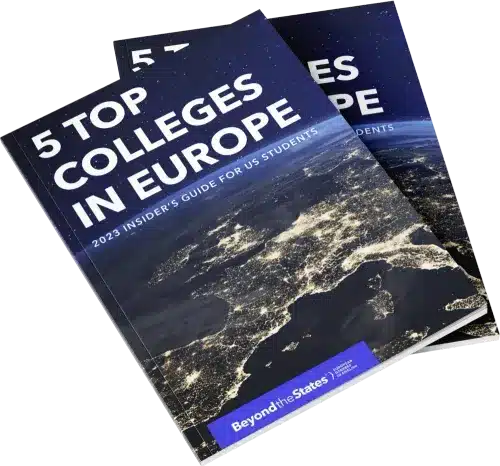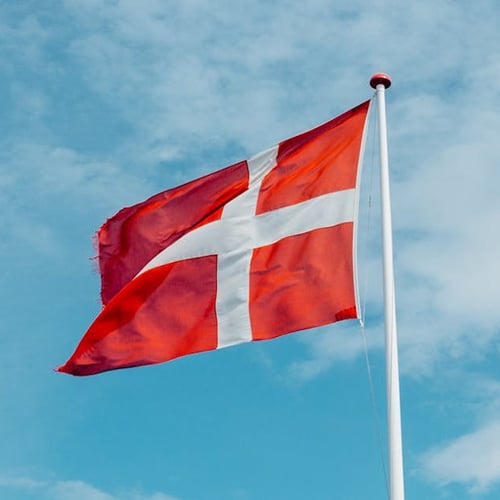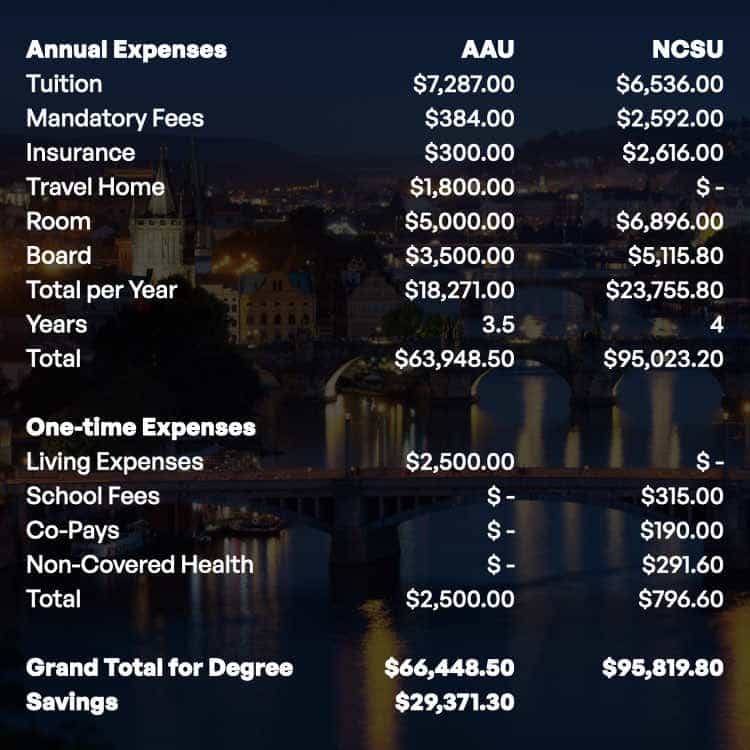How European Countries like Denmark Consider Costs
There is only one type of tour you will find me on, and that is a food tour. I wasn’t able to schedule a visit to learn about one of the very few English-taught programs in Slovakia, but we decided to take a day trip (less than one hour by train from Vienna). Since we just had one day, I scheduled a food tour to learn about the food and culture, while also seeing the city. Ellie and I were the only people signed up for the tour that day. Our guide, Simona, was in her mid twenties and received her bachelor’s degree in Slovakia and her master’s at an English-taught program in Denmark. Needless to say, I learned so much from her (including the fact that Slovakian food is incredible!).
Simona explained to me that higher education in Slovakia is more formal and resistant to change (which explains the low number of English-taught programs). She desired a mix between practice and theory which is why she decided to pursue her master’s degree in Denmark. Interestingly, many Slovakians go to the Czech Republic for higher education. Tuition at Czech public universities is free for anyone studying in Czech-taught programs-regardless of their nationality! Czech and Slovak are very similar languages. That, along with the fact that many Slovaks have grown up with exposure to both languages, provides the Czech proficiency needed to study for free.
FREE INSIDER’S GUIDE

Top 5 English-Taught Colleges in Europe
Kickstart you education abroad with a powerful degree taught entirely in English, all without taking on any student loans!
Simona also shared her theory about why Denmark recently placed limits on the number of international students they admit. She believes that this limit is at least partially due to the cost of educating students from other EU countries. Denmark has a number of ways it supports it’s citizens, including students. One is the SU monthly stipend paid to Danish students while they are enrolled in higher education. In 2006, the EU ruled that Denmark had to provide a similar benefit to all EU students who are studying in Denmark (though there are a few more conditions around it than for Danish students). This is right around $900 per month and tuition is also free for EU students.
One thing to remember here is that the reason higher education is so affordable in Europe is that it is subsidized by the government. Even though non EU students pay much more in tuition than EU students, the government still subsidizes a large amount of it. One reason some countries, including Denmark, provide English-taught programs is to benefit their own economy and labor market. Denmark, in particular, has a significant labor shortage. The Danish Ministry of Higher Education and Science conducted a study to explore the costs and contribution of international students. They found that the subsidies paid for international students (for EU and non-EU students) is “paid back” by their contribution to the economy after nine years in the country (which includes their years of study).
The problem is that only one of three international students stay in the country for long enough to positively contribute to the economy. The ministry explored this to determine the types of programs that had the largest number of students returning home after graduating and are cutting the number of international student spots in those types of programs. This does not apply to all universities in Denmark or all programs. It is primarily affecting master’s degree programs as well as bachelor’s programs related to engineering. The good news is that the Ministry is working with universities to improve educational outcomes pertaining to employability of international graduates in Denmark.
I have to tell you, this day spent with Simona, walking around Bratislava, eating incredible food, learning about Slovakian culture, was one of the best days of our trip. Simona has a full time job in Vienna, and helps her friend out with food tours when she can. I feel so lucky that she led our tour that day. In addition to introducing me to the surprisingly delicious sauerkraut soup, I greatly benefited from her insights into higher education!








